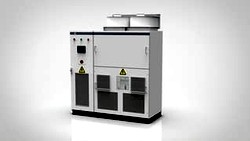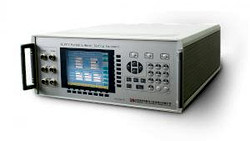The electrical energy industry is a vital foundation of modern society. It provides the electricity needed to power our homes, businesses and critical infrastructure. As the world becomes more dependent on electrical power, the duty to generate and distribute this energy safely and sustainably grows ever more important.
This is where Environmental, Health and Safety (EHS) practices become essential in the electrical energy sector. EHS initiatives address various key goals:
- Protecting the environment by minimizing pollution, emissions and promoting renewable energy sources. This ensures electrical generation and distribution does not damage ecosystems.
- Safeguarding employee and public health through accident prevention, safety protocols and hazard control. A secure working environment for energy professionals and protection for the general public are priorities.
- Maintaining reliable energy systems via rigorous safety standards, inspections, maintenance and continuous improvement of operations. This minimizes disruptions in electrical delivery.
Why EHS Matters in Electrical Energy
The electrical sector encompasses generation, transmission and distribution stages, each with potential risks like accidents, pollution and resource depletion. Robust EHS practices play an important role in:
- Protecting Workers from hazards including electrocution, falls and harmful exposures.
- Safeguarding Communities from impacts like noise, emissions and other pollution.
- Preserving the Environment by minimizing degradation from energy generation, especially from non-renewables.
- Ensuring Compliance with strict regulations from authorities worldwide to reduce harm and encourage sustainability.
Key EHS Practices in the Electrical Energy Segment
Here are the essential EHS practices that are driving positive change in the dynamic world of the electrical energy segment.
Environmental Protection
- Transitioning to Renewables like solar, wind and hydro reduces emissions and conserves resources.
- Controlling Emissions via technologies like flue-gas desulfurization and carbon capture at power plants.
- Managing Resources efficiently to minimize environmental footprints, including closed-loop cooling systems.
- Handling Waste properly, including safe disposal and recycling of hazardous materials.
Health and Safety
- Conducting Risk Assessments to identify and mitigate potential hazards.
- Providing comprehensive Safety Training on protocols and emergency response.
- Using Personal Protective Equipment to guard against shocks, burns and other hazards.
- Offering Health Monitoring like check-ups to manage occupational health risks.
Sustainability and Efficiency
- Investing in Energy-Efficient equipment like transformers and conductors to reduce losses.
- Encouraging consumers to use electricity more efficiently and shift consumption to off-peak times.
- Considering environmental impacts throughout infrastructure lifecycles to minimize overall footprints.
- Promoting the development of new sustainable technologies and practices.

(symbol image, credit CLOU)
Regulatory Compliance and Reporting
- Complying with international standards like ISO 14001 and ISO 45001.
- Publishing EHS performance data regularly to maintain transparency.
- Conducting internal and external audits to ensure practices are effective.
Community Engagement
- Engaging stakeholders to address concerns and incorporate feedback.
- Collaborating on emergency preparedness and response plans.
- Supporting local economies through job creation and local sourcing where possible.
The Path Ahead
The electrical sector constantly faces EHS challenges like climate change, limited resources and evolving regulations. Key directions include:
- Integrating smart technologies like IoT and AI to monitor risks.
- Supporting distributed energy resources to enhance resilience.
- Collaborating across sectors on systemic EHS solutions.
Takeaway
The electrical industry has a significant role in enabling a sustainable future through robust EHS practices. By minimizing its impacts and embracing innovation, the sector can continue providing vital energy while supporting global development. Valuing safety, health and environmental stewardship is key to powering our modern lives responsibly.
I welcome any thoughts or feedback on EHS practices and challenges. Until then, let's keep powering forward with safety and responsibility!





All comments are moderated before being published. Inappropriate or off-topic comments may not be approved.